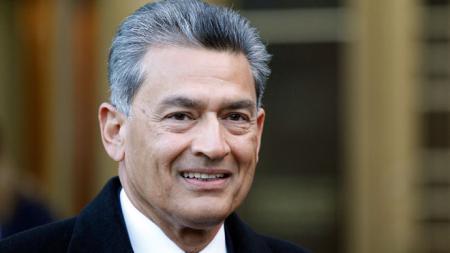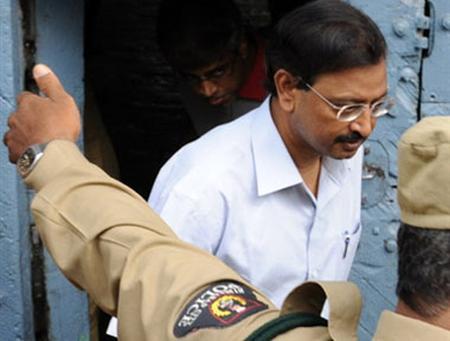Photographs: Reuters Kumkum Sen
The writer feels that if Sebi had adjudicated Rajat Gupta's case, he would have got off with a mild fine or probably the charges would have been dropped because of his impeccable track record.
White collar crimes are non-violent manifestations of illegal behaviour, which involve the worst characteristics of human nature: deceit, manipulation, breach of trust, to name a few.
White collar crime perpetrators are normally members of the educated professional class, such as bankers, hedge fund managers, key managerial officers of corporations, to provide a few examples.
Most cases involve insiders hand in glove with outsiders, in deriving benefits with the purpose of sharing the spoils, or an unidentifiable quid pro quo.
Take for example, the Reebok case, where the managing director and COO are charged for conspiring with franchisees, or Enron, where the auditor was hand in glove with the top management.
The revered icon of the Indian and NRI corporate sector, one of the founders of ISB - Rajat Gupta's conviction came as a shock to his admirers in the country of his birth, possibly more than it affected his compatriots in his country of domicile.
His offence - disclosing material proprietary information to Raj Rajaratnam, his friend and business associate, thereby, breaching his confidentiality obligations to Goldman Sachs.
...
Why Gupta's sentencing shocked Indian businessmen
Photographs: Paul Hackett/Reuters
The insider or the trustee's culpability under law is in the nature of breach of trust, as the US Court, which convicted Rajat Gupta observed, that even if he did not personally profit, the court viewed his actions as a betrayal of his fiduciary duties to Goldman Sachs.
That his imprisonment sentence is for two years, in addition to a hefty fine, and not the 10 years the prosecution had pitched for, indicates that the Judge did pay heed to the several leniency petitions that were made to him by eminent people such as Bill Gates and Deepak Chopra, citing Gupta's impeccable track record and reputation.
Also, the fact that the prosecution could not prove that Gupta derived any benefit or gratification. However, the Judge rejected Gupta's proposal for probation dedicated to relief and other voluntary work.
Evidently the sentence of imprisonment was consciously delivered, as Gupta himself as a votary of governance and best practices had violated the sacrosanct commandment of confidentiality, by what the Judge describes 'his egregious breach of trust" to operate as a deterrent to others in high places. Incidentally, the wire-tapping was not an issue in Gupta's trial.
...
Why Gupta's sentencing shocked Indian businessmen
Photographs: Reuters
Closer home, there have been instances of insiders being found guilty by the Securities and Exchange Board of India (Sebi) but let off with fines.
Dilip Pendse, the blue eyed boy of Tata Sons, was held guilty by Sebi in 2005. However, the Securities Appellate Tribunal (SAT) set aside the verdict, as it was based on a single statement of the beneficiary, who was also an insider.
Earlier this year, a former director of Ranbaxy Laboratories and the chairman of Jaiprakash Associates were fined, but the SAT has set aside Sebi's order against the Jaiprakash Associates chairman.
Given the soft approach, and also limitations in the extant regulations, inherent difficulties in collating evidence, Sebi has not imposed imprisonment as a punishment for insider trading.
If Rajat Gupta's case had been adjudicated by Sebi, he would have got off with a mild fine or probably the charges would have been dropped, not in spite, but because of his impeccable track record.
Which is why Gupta's conviction for his complicity as the insider with two years imprisonment has evoked a state of denial and disbelief in the Indian business and professional community, whose sentiments were not aroused on Raj Rajaratanam's conviction.
Nor for Ramalingam Raju, whose achievements were no less. By US Court standards, Gupta's sentencing was soft and may not operate as the deterrent it is intended to be.
Kumkum Sen is a partner at Bharucha Partners Delhi Office, and can be reached at kumkum.sen@bharucha.in





article